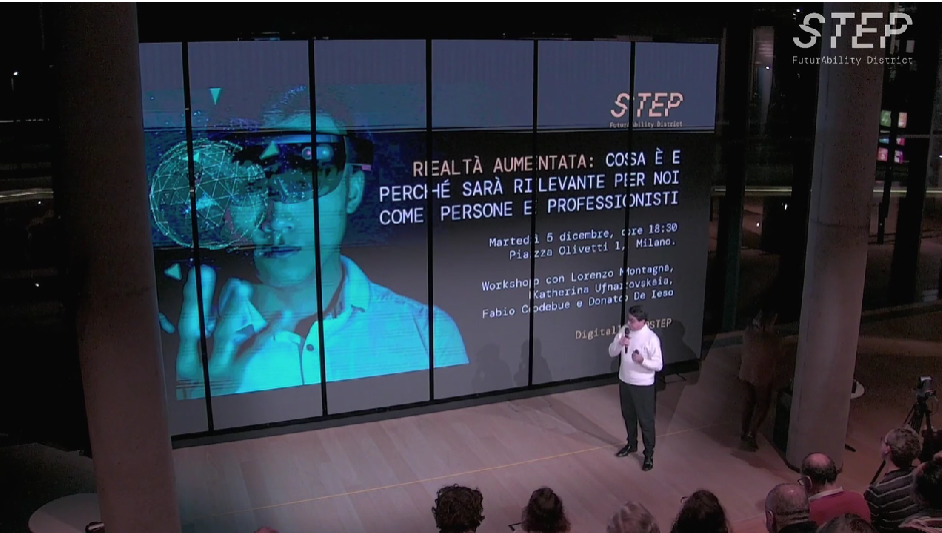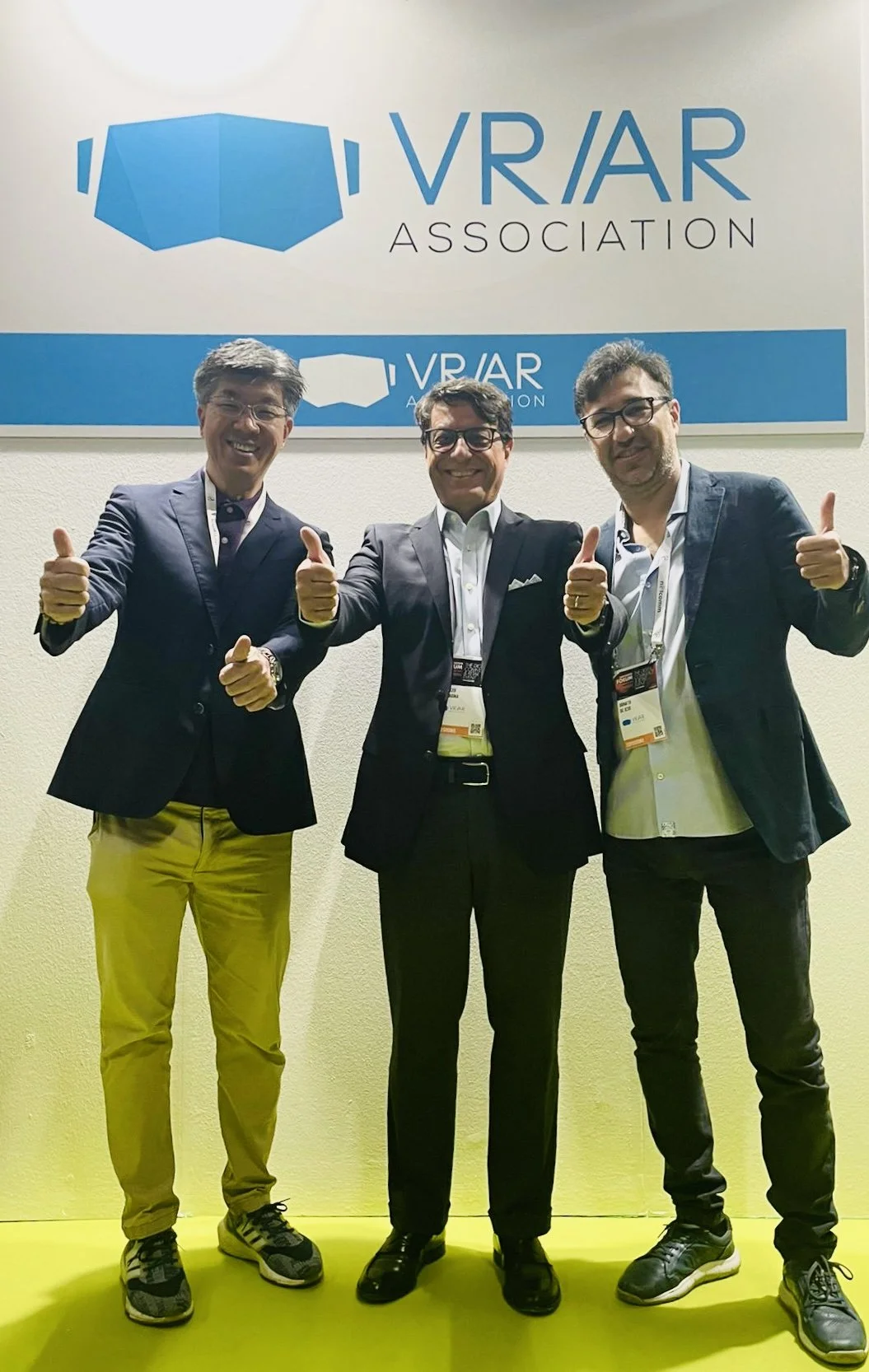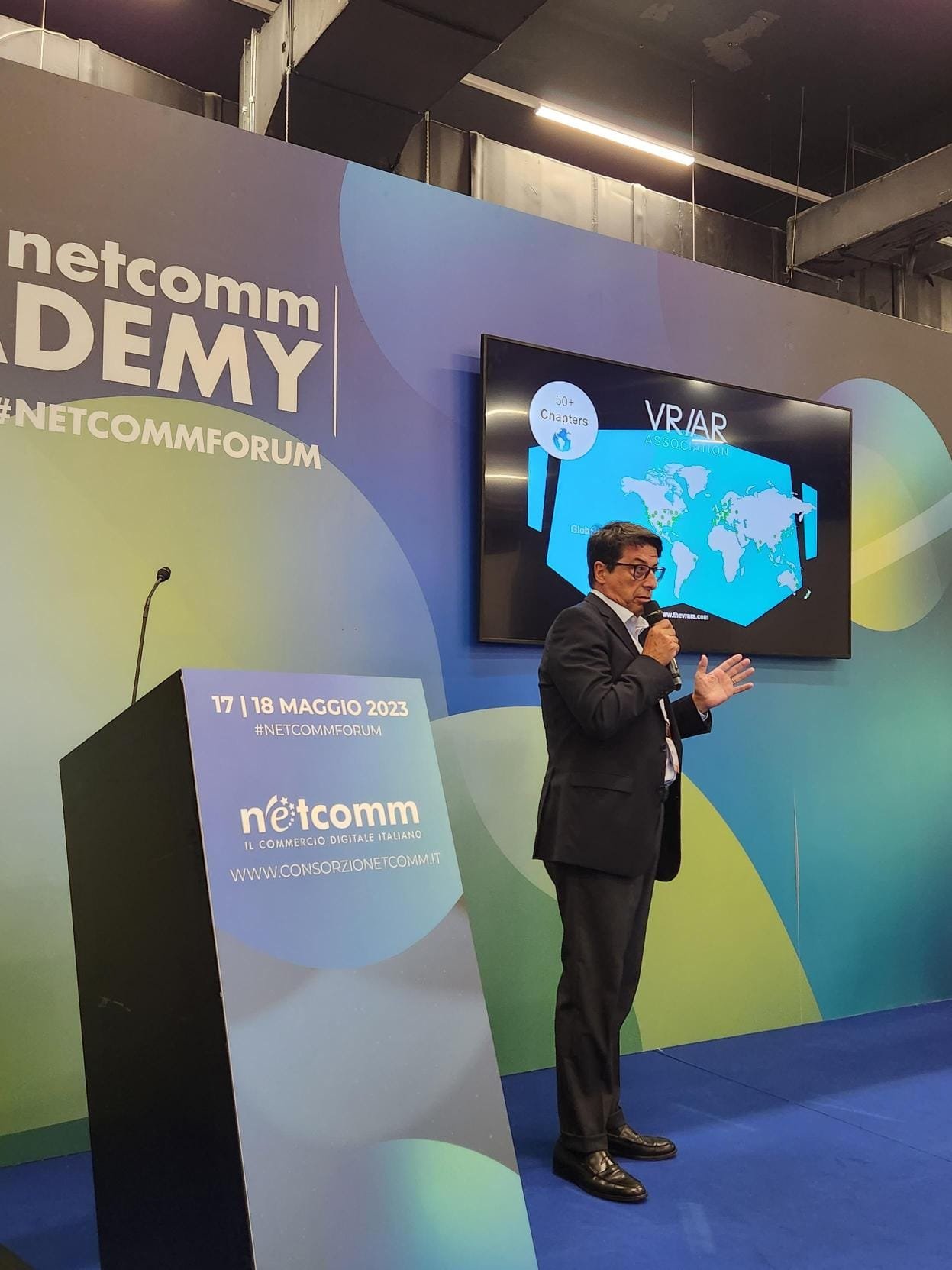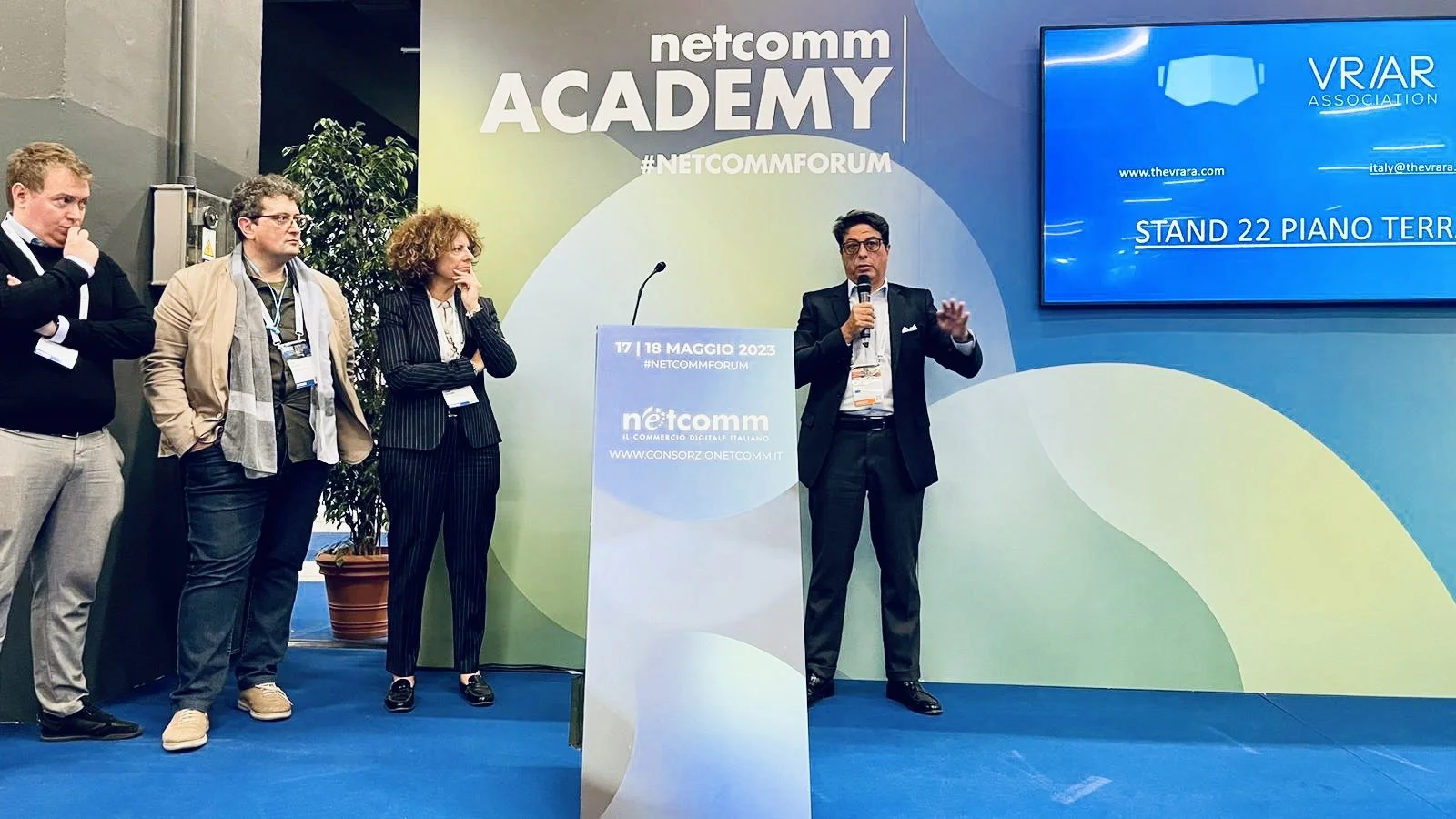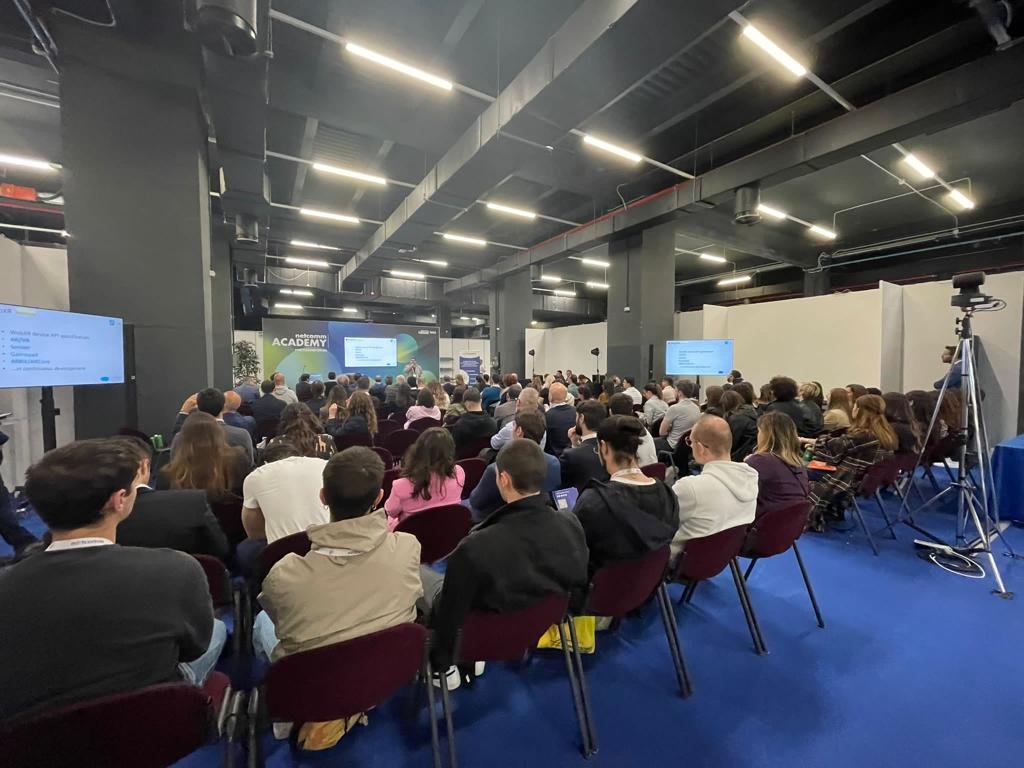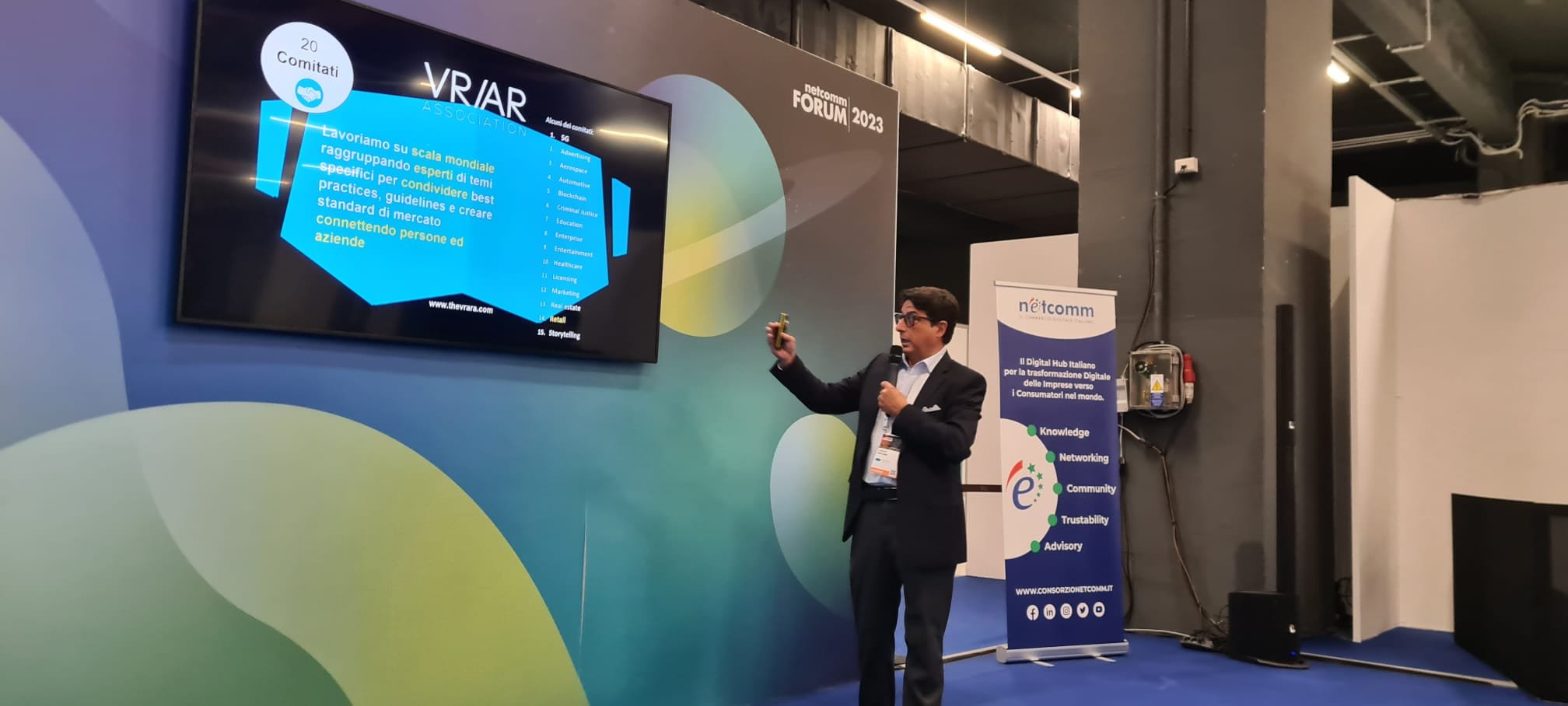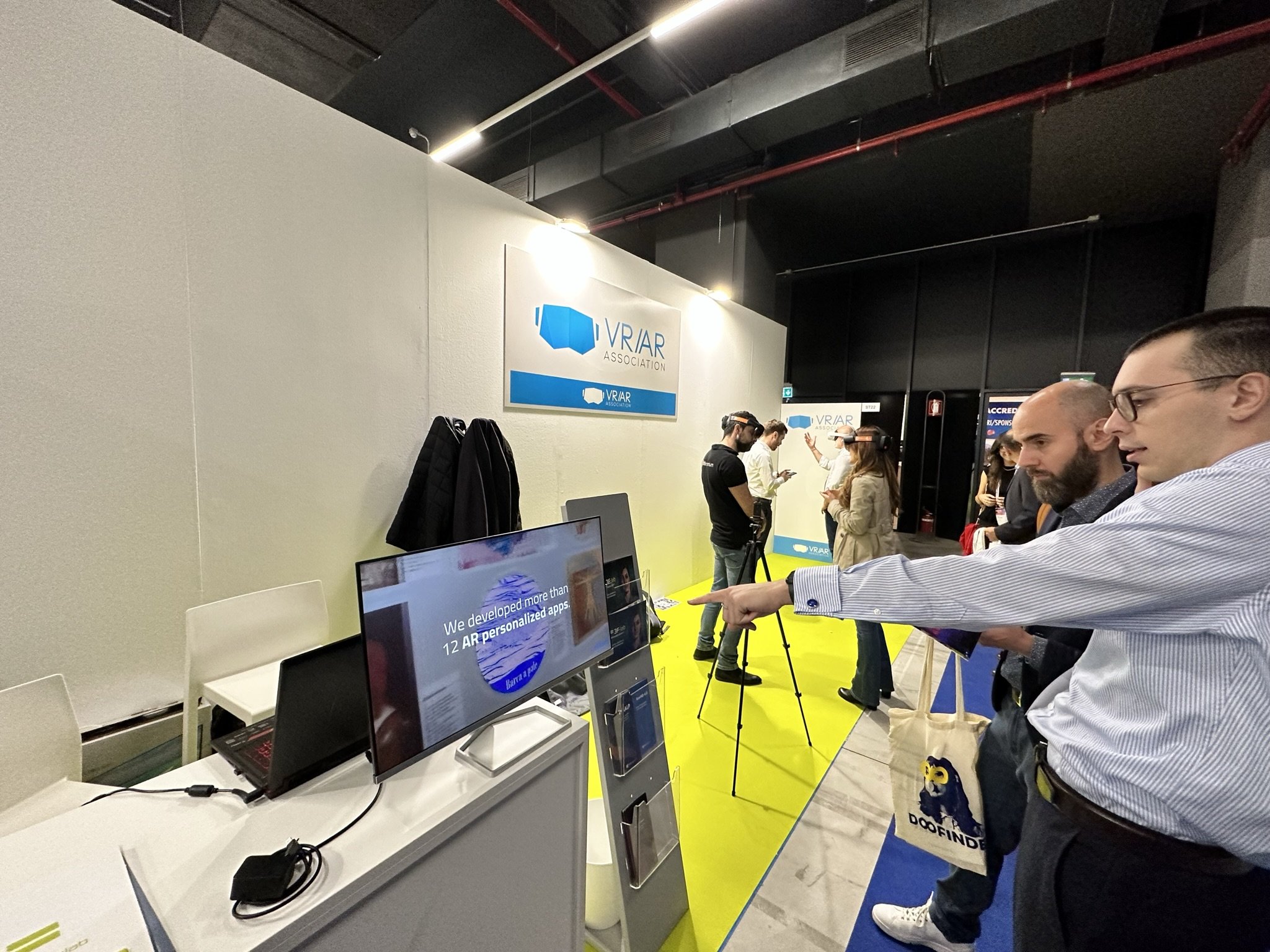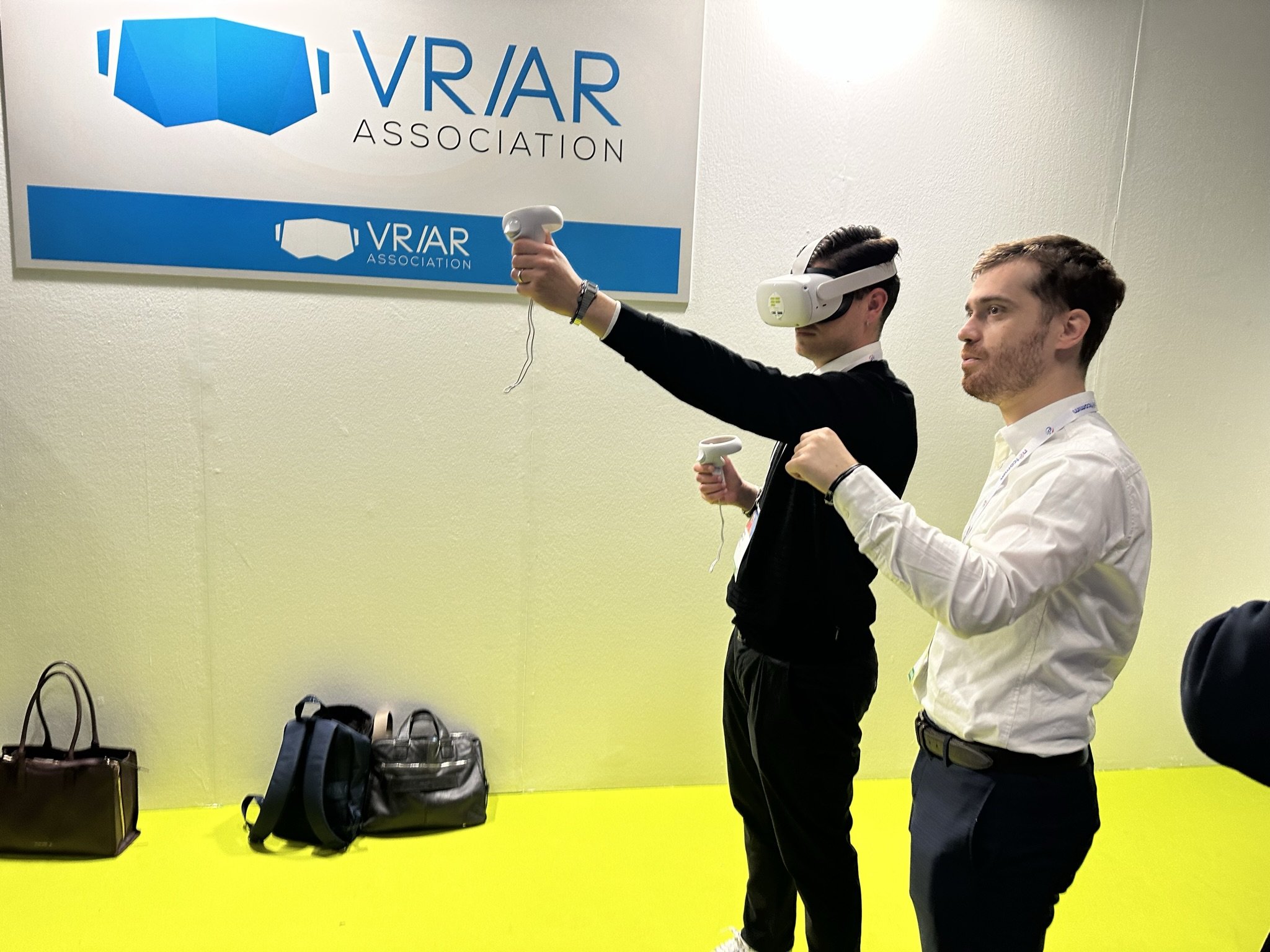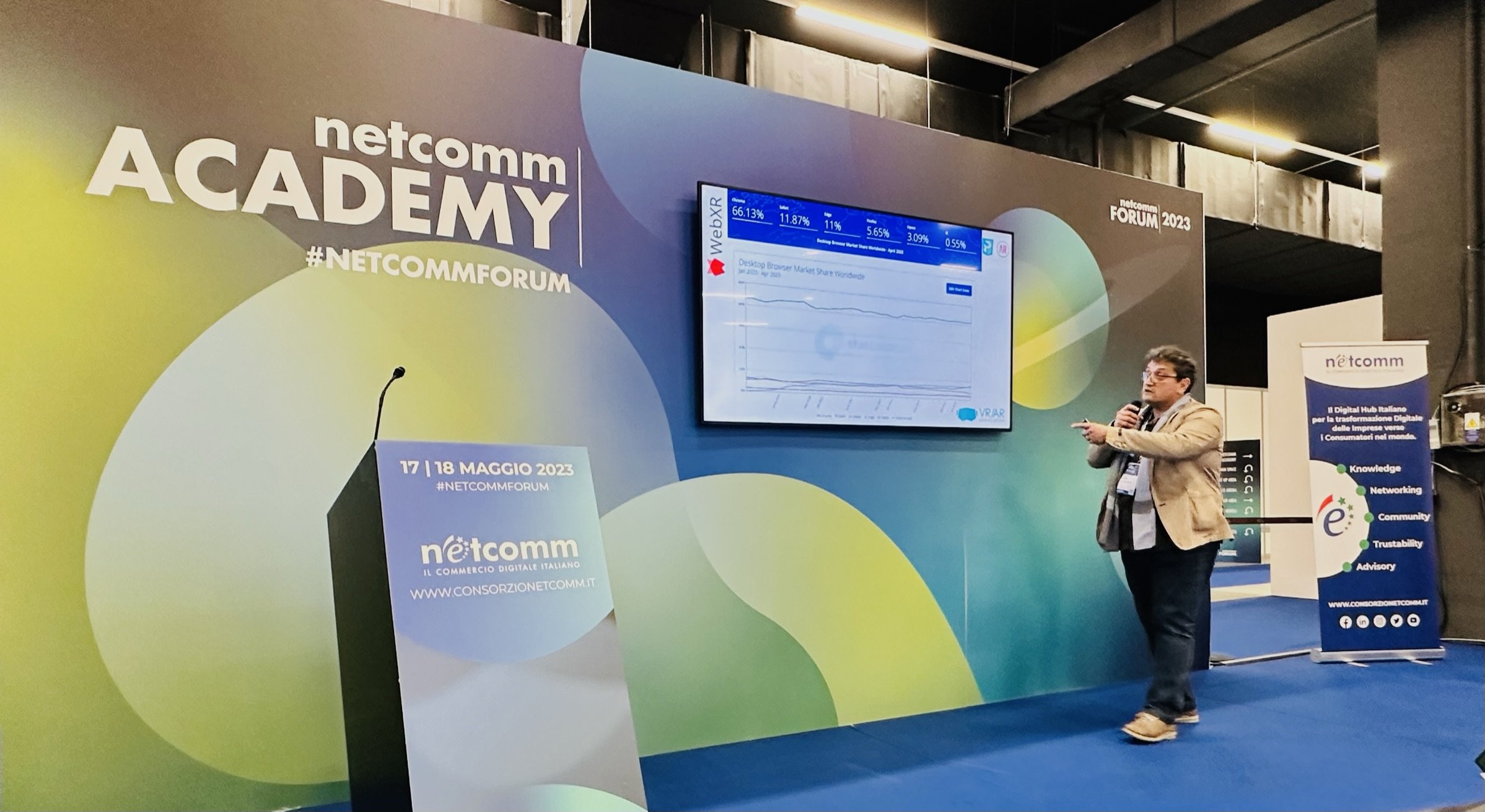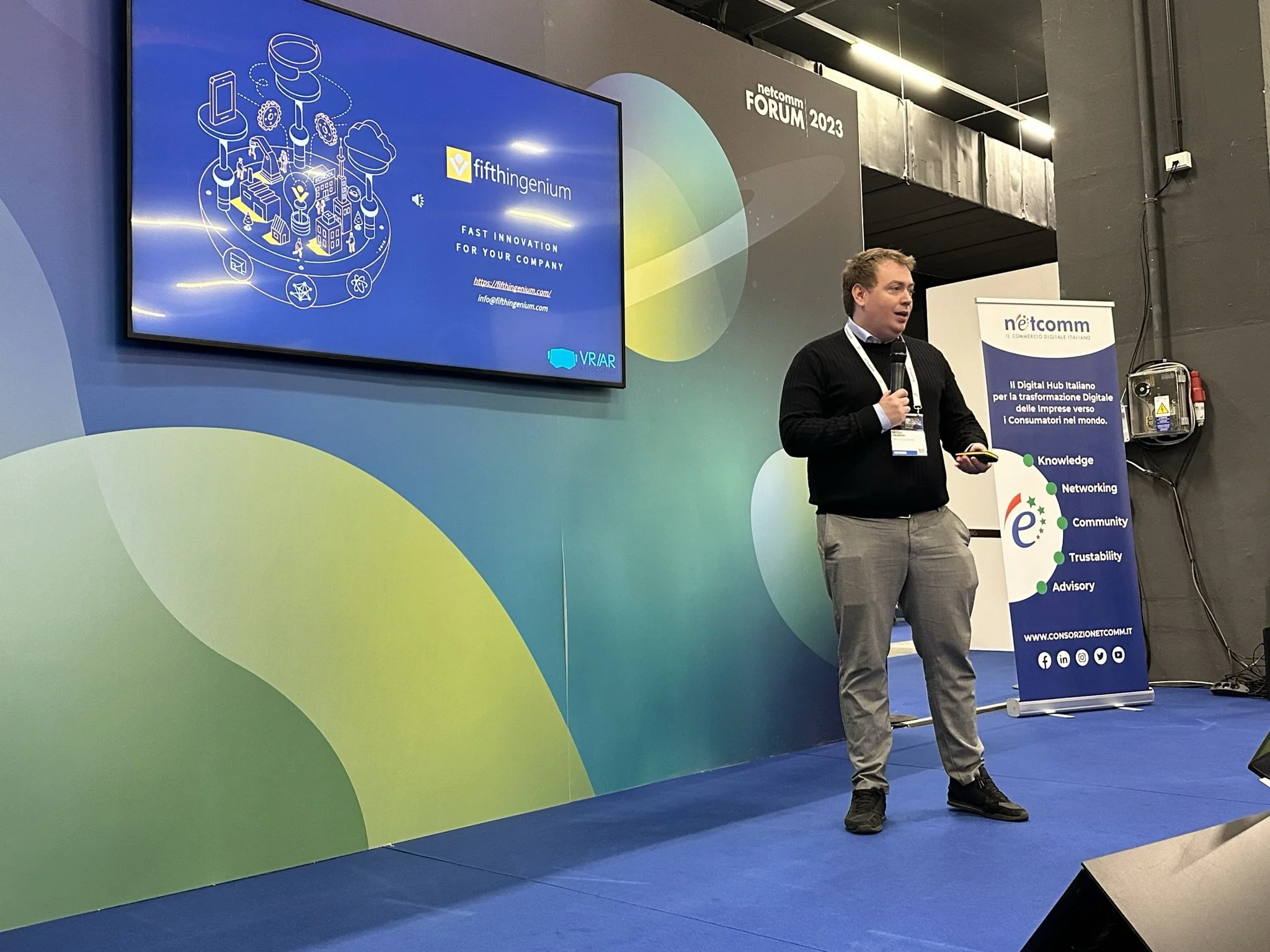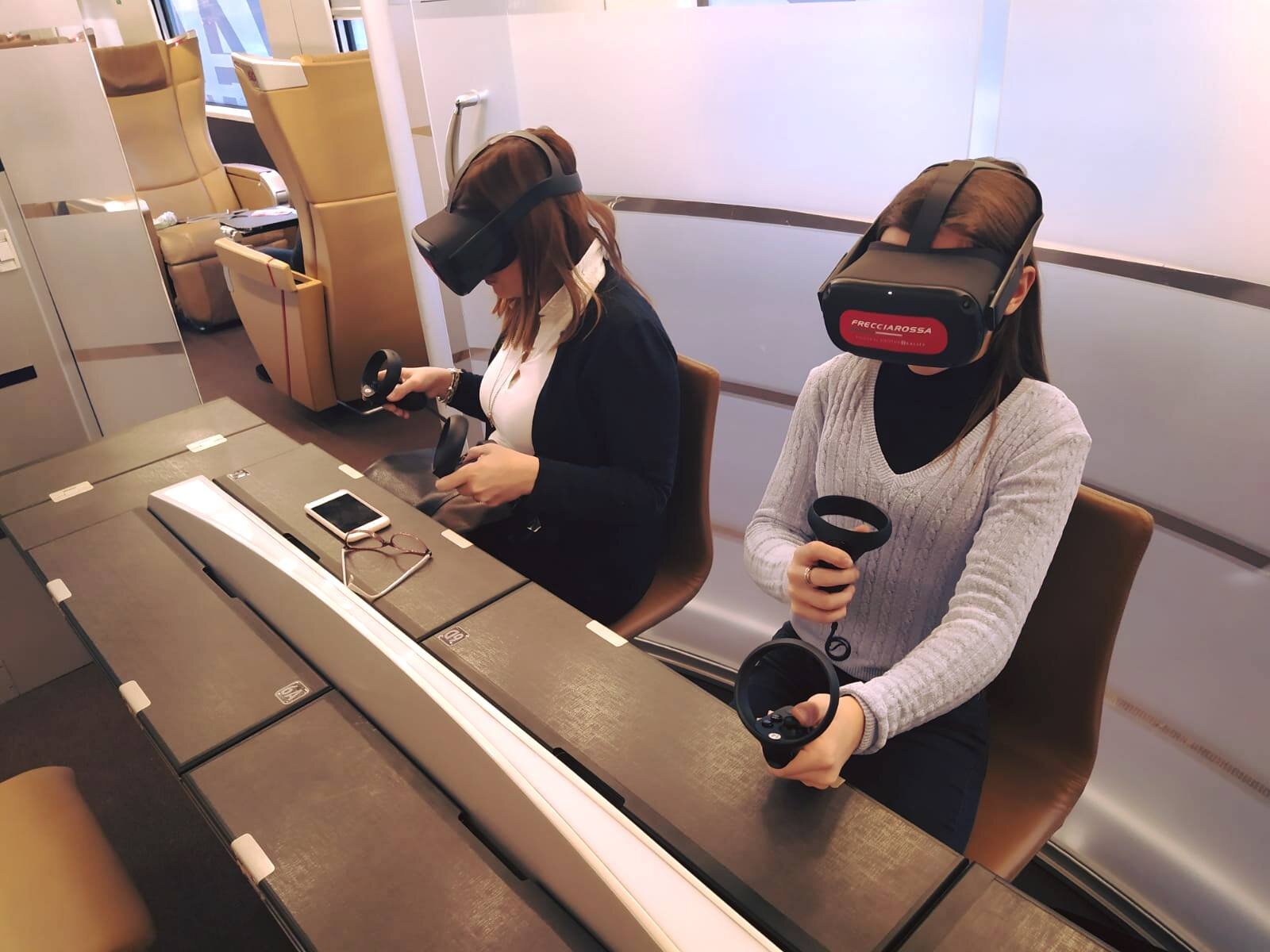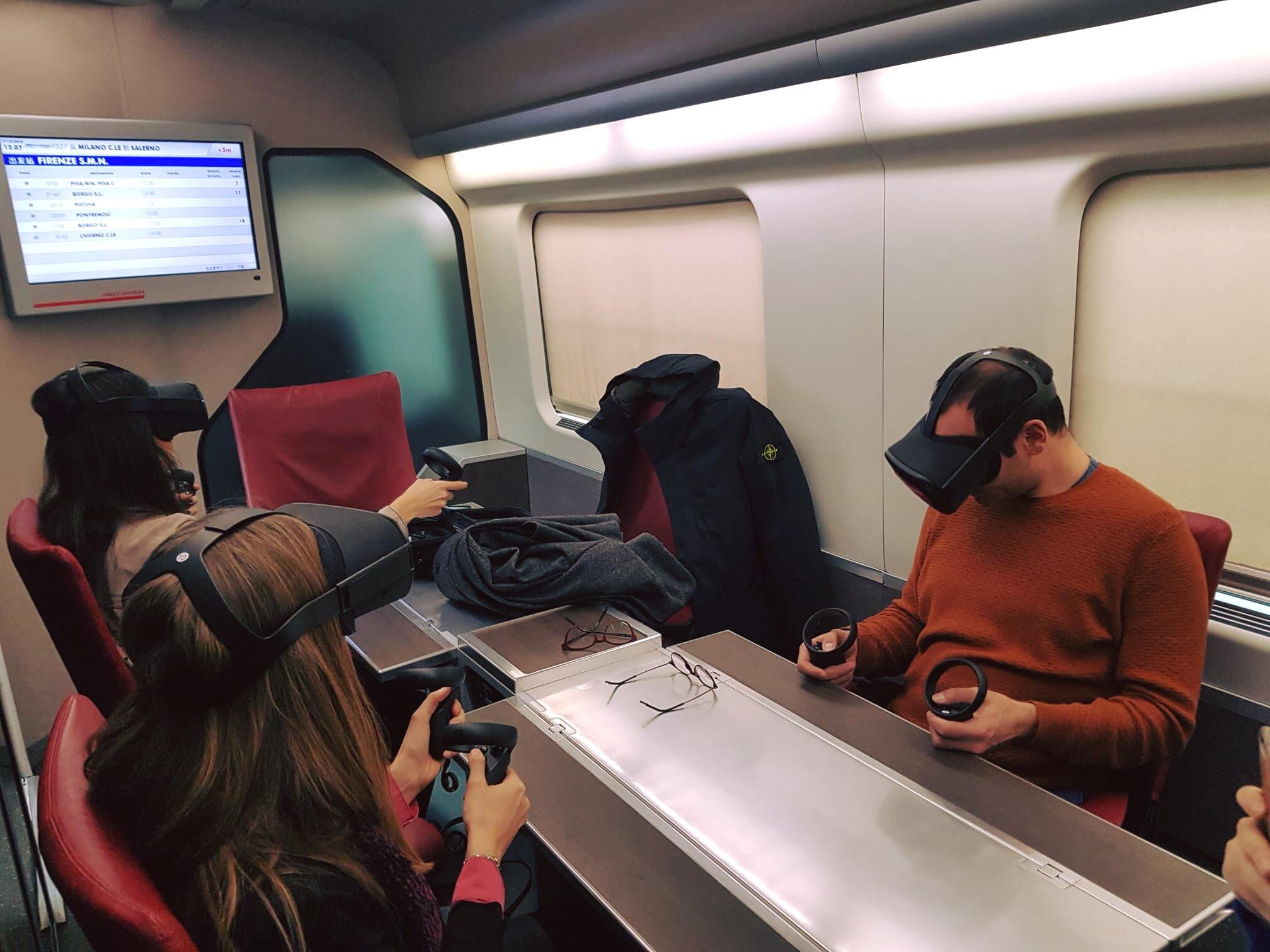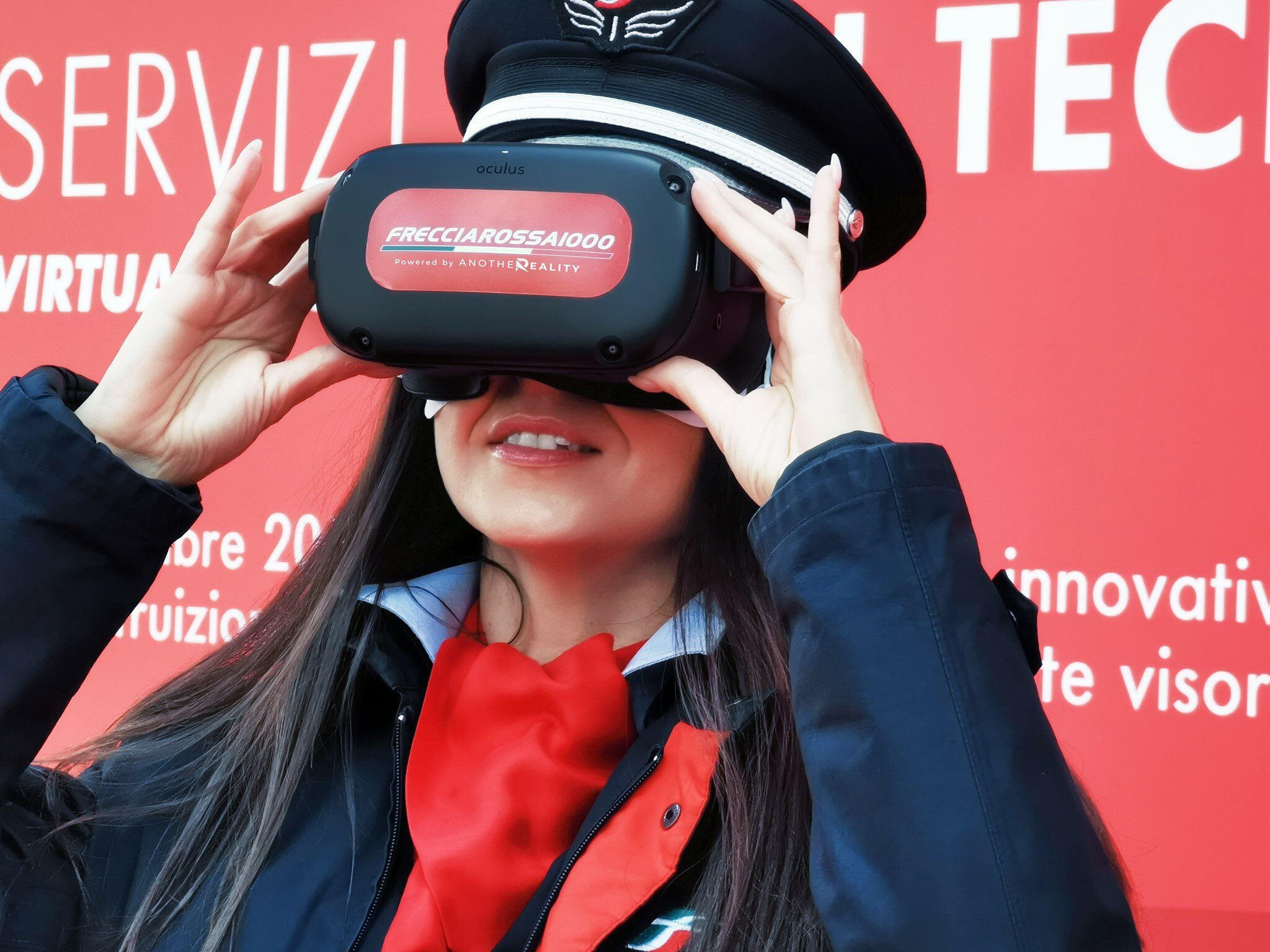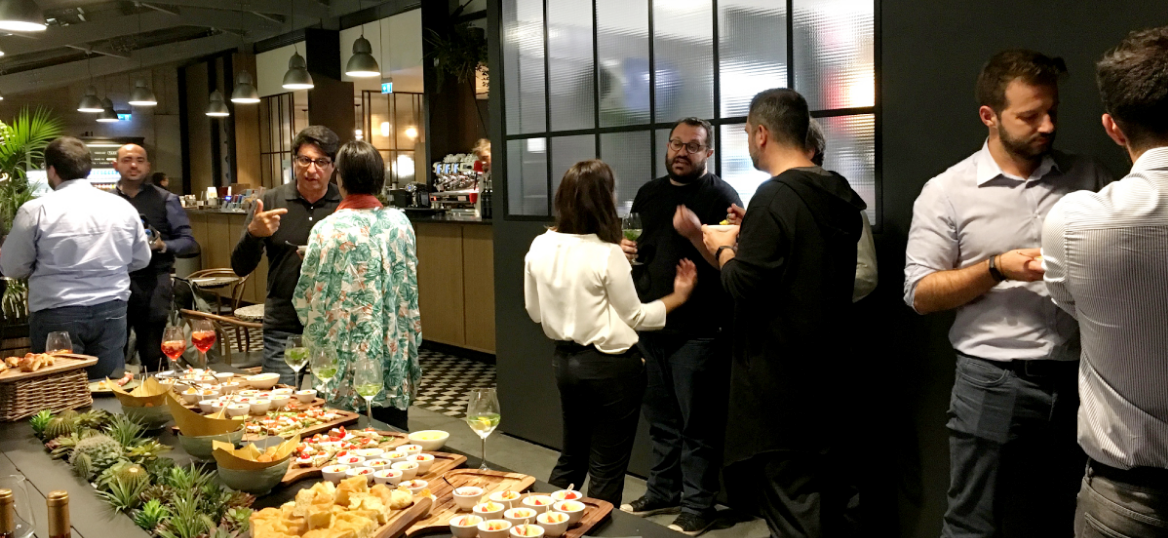di Daniele Monaco Contributor
10 APR, 2020
Dalla moda all'ecommerce, dall'industria allo smart working, ecco come realtà aumentata e virtuale possono trasformare i business tradizionali (e lo stanno già facendo)
Sfilate di moda con avatar, 3Dcommerce, smartworking dei colletti blu e scuola in realtà virtuale: frontiere sempre più vicine, dal marketing all’intrattenimento, dall’immobiliare al mondo della formazione. Le regole di distanziamento sociale imposte dall’emergenza coronavirus rendono impossibile incontrarsi nel mondo fisico ma visori, smartglass e supporti olografici possono ricreare comunicazioni e rapporti personali, con tecnologie immersive di realtà virtuale (Vr), aumentata (Ar) e mista (Mr).
Se negli Stati Uniti Virtualitics già permette di visualizzare i big data in 3D all’interno di ambienti virtuali, realizzando uno scenario alla Minority Report, anche le software house italiane sono all’opera. Già prima della crisi Covid-19, la società di consulenza Pricewaterhouse Cooper ha previsto che il settore apporterà 1.500 miliardi di dollari e 23,3 milioni di nuovi posti di lavoro all’economia mondiale entro il 2030. La stima del contributo al Pil globale è di 360 miliardi di dollari nel manifatturiero, 351 nella medicina, 294,2 nella formazione, 275 nella manutenzione, 204 nel retail.
“Queste tecnologie sono state considerate finora più come un ‘nice to have’ che un investimento per la produttività e l’efficienza personale”, osserva Lorenzo Montagna, presidente di Vr/Ar Association, associazione del settore di Milano. “La crisi coronavirus accelererà un’adozione strategica di cui nessuno potrà fare a meno in futuro, per riprodurre il rapporto compratore-venditore, ricreare le occasioni di incontro intorno ai prodotti e tutte quelle situazioni in cui è utile una compresenza di persone come sport, intrattenimento e cultura. Anche per questo la Vr già funziona bene nella formazione”.
Formazione e manifatturiero
Tanto che a Bologna il Comune ha lanciato il progetto Classroom 3.0 per l’istituto tecnico industriale Aldini Valeriani, con Eon Reality, Fondazione Corazza e Fav. Da settembre 300 studenti dell’ultimo anno seguiranno lezioni in Ar/Vr, per simulare in un ecosistema digitale le attività che svolgeranno negli ambienti di lavoro. Un ponte tra scuola e mondo professionale, realizzato grazie a una piattaforma di contenuti generati dagli utenti, basata sul software Creator Avr.
I docenti utilizzeranno modelli e foto a 360° per creare le lezioni accedendo a CgTrader, il maggiore repository di modelli 3D del mondo, oppure caricando gli asset 3D prodotti dagli studenti, partendo da una web page in backend. Il tutto senza dover scrivere una riga di codice, mentre in frontend basterà scaricare un’app disponibile per iOS e Android.
Lo stesso potrà avvenire per la formazione dei dipendenti e l’assistenza da remoto su procedure di sicurezza, montaggio e operatività di macchinari, volte a garantire la continuità produttiva delle aziende in qualsiasi scenario. “Le applicazioni vanno dai processi di pressurizzazione gas alla saldatura, dai sequenziatori di Dna ai corsi per fare le crepes, attraverso nuovi paradigmi di formazione esperienziale e memoria muscolare che permettono di imparare quasi il doppio dei metodi tradizionali e che aumentano del 70% la capacità di memorizzare”, spiegano da Eon Reality.
Sul fronte della manutenzione
Lo conferma Marco Zanuttini, amministratore delegato di OverIt azienda friulana del gruppo Engineering, con clienti fra le multiutility del settore energetico, infrastrutture e telecomunicazioni (Eni, Enel, Italgas, Open Fiber…). “I device di realtà aumentata sono stati spesso percepiti come un elemento ‘scenografico’ fra le soluzioni a disposizione di un’azienda”, osserva Zanuttini. “La crisi da coronavirus potrebbe però accelerare le sperimentazioni come già accaduto in Spagna, dove un’azienda ci ha chiesto l’installazione urgente dei software e l’invio immediato degli smartglass, per la manutenzione dei propri impianti, in mancanza di personale”.
È lo smartworking dei colletti blu, con i visori wearable destinati a superare tablet e smartphone come supporto per visualizzare un digital twin e comunicare con l’assistente remoto. “I dispositivi Ar sono utili quando il personale non può spostarsi in trasferta, per garantire il passaggio di know-how da un addetto senior a uno junior e per guidare da remoto personale non tecnico”, spiega Zanottini. “L’uso di un ambiente virtuale è ‘trasparente’ al problema, quando un impianto permette di per sé operazioni a distanza. È diverso quando è necessario avvalersi della presenza sul posto di personale, anche non specializzato, a cui l’Ar può garantire un’extended maintenance”.
Condividere oggetti virtuali sul campo visivo dell’utente per una smart assistance sul campo è la modalità con cui Joinpad supporta la manutenzione dei treni di Alstom a Sesto San Giovanni, mentre Uqido ha realizzato ambienti virtuali per addestrare i tecnici Nokia a riparare le antenne a 40 metri d’altezza. “Casi in cui se sbagli nella vita reale non hai una seconda chance”, osserva Pier Mattia Avesani, ad di Uqido (Padova). “La realtà virtuale permette di tracciare i movimenti e valutarli senza dover ricostruire la postazione per ogni apprendista, con grandi potenzialità nella medicina”.
Nella medicina
La prima operazione chirurgica al mondo in realtà aumentata è avvenuta di recente all’ospedale Sant’Orsola di Bologna. Lo specialista maxillo-facciale indossava il visore Vostars, realizzato nell’ambito di un progetto europeo coordinato dall’Università di Pisa. Nel campo visivo poteva visualizzare una linea virtuale in 3D lungo il percorso da seguire con lo strumento chirurgico. Il visore ha permesso per la prima volta una messa a fuoco coerente tra immagine virtuale e reale, quindi la giusta coordinazione occhio-mano nell’atto chirurgico.
A Milano, invece, i video immersivi di Impersive permettono di ricostruire l’esperienza del tecnico di laboratorio per il test sui campioni genomici di cellule tumorali. Il tirocinante che deve conseguire la formazione con i crediti Ecm può così ripetere l’esperienza senza dover assistere di persona alla procedura, registrata dal punto di vista del tecnico all’Università Federico II di Napoli.
“Grazie alle ecografie è possibile riprodurre immagini in Ar di organi e patologie, ma lo stesso vale con gli oggetti per moda e manifatturiero” – osserva Avesani – “quando gli agenti commerciali non possono spostarsi o recarsi alle fiere di settore è possibile ricreare un oggetto in 3D con milioni di poligoni grazie a tecniche di fotogrammetria”.
Il settore retail
“Il lockdown ha dato una forte accelerazione all’ecommerce ma la prossima frontiera è il nuovo standard ‘3DCommerce‘ che l’associazione americana Khronos Group sta elaborando, con il sostegno di circa 90 aziende del settore, da Amazon a Shopify, da CgTrader a Sketchfab, sviluppando un’evoluzione del formato gLtf, usato per la trasmissione di asset 3D fotorealistici”. La previsione è di Matteo Esposito, ad di Invrsion di Milano, che realizza supermercati virtuali per gli studi di marketing di brand come Nestlé, Ferrero, Pepsi, Mondelez ed Esselunga.
“Il mondo della moda ha dei budget già allocati per le sfilate attualmente bloccate, ma potrebbe essere il primo a beneficiare della realtà virtuale per portare lo showroom al buyer e non viceversa” – spiega Esposito – “il problema sarà la riconversione di alcune maison che disegnano ancora i modelli a mano, fino a pochi giorni prima di andare in produzione”. Invrsion ha ricostruito in Vr un intero quartiere di Miami per consentire a un’agenzia immobiliare del posto di invitare i potenziali acquirenti all’acquisto di appartamenti con arredi griffati.
“Dubito che il futuro della Vr sia iperrealistico, aptico, olfattivo e multisensiorale” – osserva Esposito – “Facebook ha già venduto diversi milioni di Oculus e credo si andrà sempre più verso device standalone, con la potenza di calcolo del cloud in 5G ad alta risoluzione. Lavoriamo a un prodotto ecommerce affinché il retailer colleghi la propria piattaforma su questo tipo di supporto”.
“Fino a poco tempo fa eravamo un ‘gadget efficace’ per la grande industria, ma ora questa esperienza può diventare strategica. Tuttavia, per indossare un visore bisogna creare un motivo: vivere un’esperienza immersiva e un’interazione convincente”, conclude Guido Geminiani di Impersive, che da sei anni ha prodotto 300 progetti commerciali Vr per X-Factor, Sony e diverse squadre di Serie A. “Stiamo sviluppando demo per la moda, stanze virtuali per consentire ai buyer di interagire tramite avatar e vedere la nuova collezione presentata durante la fashion week”.
VEDI TUTTI
HOME ECONOMIA BUSINESS
Come la realtà virtuale può cambiare l'economia dopo il coronavirus
di Daniele Monaco
Contributor
10 APR, 2020
Dalla moda all'ecommerce, dall'industria allo smart working, ecco come realtà aumentata e virtuale possono trasformare i business tradizionali (e lo stanno già facendo)
(foto: Getty Images)
Sfilate di moda con avatar, 3Dcommerce, smartworking dei colletti blu e scuola in realtà virtuale: frontiere sempre più vicine, dal marketing all’intrattenimento, dall’immobiliare al mondo della formazione. Le regole di distanziamento sociale imposte dall’emergenza coronavirus rendono impossibile incontrarsi nel mondo fisico ma visori, smartglass e supporti olografici possono ricreare comunicazioni e rapporti personali, con tecnologie immersive di realtà virtuale (Vr), aumentata (Ar) e mista (Mr).
Se negli Stati Uniti Virtualitics già permette di visualizzare i big data in 3D all’interno di ambienti virtuali, realizzando uno scenario alla Minority Report, anche le software house italiane sono all’opera. Già prima della crisi Covid-19, la società di consulenza Pricewaterhouse Cooper ha previsto che il settore apporterà 1.500 miliardi di dollari e 23,3 milioni di nuovi posti di lavoro all’economia mondiale entro il 2030. La stima del contributo al Pil globale è di 360 miliardi di dollari nel manifatturiero, 351 nella medicina, 294,2 nella formazione, 275 nella manutenzione, 204 nel retail.
“Queste tecnologie sono state considerate finora più come un ‘nice to have’ che un investimento per la produttività e l’efficienza personale”, osserva Lorenzo Montagna, presidente di Vr/Ar Association, associazione del settore di Milano. “La crisi coronavirus accelererà un’adozione strategica di cui nessuno potrà fare a meno in futuro, per riprodurre il rapporto compratore-venditore, ricreare le occasioni di incontro intorno ai prodotti e tutte quelle situazioni in cui è utile una compresenza di persone come sport, intrattenimento e cultura. Anche per questo la Vr già funziona bene nella formazione”.
Formazione e manifatturiero
Tanto che a Bologna il Comune ha lanciato il progetto Classroom 3.0 per l’istituto tecnico industriale Aldini Valeriani, con Eon Reality, Fondazione Corazza e Fav. Da settembre 300 studenti dell’ultimo anno seguiranno lezioni in Ar/Vr, per simulare in un ecosistema digitale le attività che svolgeranno negli ambienti di lavoro. Un ponte tra scuola e mondo professionale, realizzato grazie a una piattaforma di contenuti generati dagli utenti, basata sul software Creator Avr.
I docenti utilizzeranno modelli e foto a 360° per creare le lezioni accedendo a CgTrader, il maggiore repository di modelli 3D del mondo, oppure caricando gli asset 3D prodotti dagli studenti, partendo da una web page in backend. Il tutto senza dover scrivere una riga di codice, mentre in frontend basterà scaricare un’app disponibile per iOS e Android.
Lo stesso potrà avvenire per la formazione dei dipendenti e l’assistenza da remoto su procedure di sicurezza, montaggio e operatività di macchinari, volte a garantire la continuità produttiva delle aziende in qualsiasi scenario. “Le applicazioni vanno dai processi di pressurizzazione gas alla saldatura, dai sequenziatori di Dna ai corsi per fare le crepes, attraverso nuovi paradigmi di formazione esperienziale e memoria muscolare che permettono di imparare quasi il doppio dei metodi tradizionali e che aumentano del 70% la capacità di memorizzare”, spiegano da Eon Reality.
Visori e joystick fanno parte degli strumenti usati per la realtà virtuale (foto: RAEng_Publications da Pixabay)
Sul fronte della manutenzione
Lo conferma Marco Zanuttini, amministratore delegato di OverIt azienda friulana del gruppo Engineering, con clienti fra le multiutility del settore energetico, infrastrutture e telecomunicazioni (Eni, Enel, Italgas, Open Fiber…). “I device di realtà aumentata sono stati spesso percepiti come un elemento ‘scenografico’ fra le soluzioni a disposizione di un’azienda”, osserva Zanuttini. “La crisi da coronavirus potrebbe però accelerare le sperimentazioni come già accaduto in Spagna, dove un’azienda ci ha chiesto l’installazione urgente dei software e l’invio immediato degli smartglass, per la manutenzione dei propri impianti, in mancanza di personale”.
È lo smartworking dei colletti blu, con i visori wearable destinati a superare tablet e smartphone come supporto per visualizzare un digital twin e comunicare con l’assistente remoto. “I dispositivi Ar sono utili quando il personale non può spostarsi in trasferta, per garantire il passaggio di know-how da un addetto senior a uno junior e per guidare da remoto personale non tecnico”, spiega Zanottini. “L’uso di un ambiente virtuale è ‘trasparente’ al problema, quando un impianto permette di per sé operazioni a distanza. È diverso quando è necessario avvalersi della presenza sul posto di personale, anche non specializzato, a cui l’Ar può garantire un’extended maintenance”.
Condividere oggetti virtuali sul campo visivo dell’utente per una smart assistance sul campo è la modalità con cui Joinpad supporta la manutenzione dei treni di Alstom a Sesto San Giovanni, mentre Uqido ha realizzato ambienti virtuali per addestrare i tecnici Nokia a riparare le antenne a 40 metri d’altezza. “Casi in cui se sbagli nella vita reale non hai una seconda chance”, osserva Pier Mattia Avesani, ad di Uqido (Padova). “La realtà virtuale permette di tracciare i movimenti e valutarli senza dover ricostruire la postazione per ogni apprendista, con grandi potenzialità nella medicina”.
Tecnico all’opera con realtà aumentata (foto: OverIT)
Nella medicina
La prima operazione chirurgica al mondo in realtà aumentata è avvenuta di recente all’ospedale Sant’Orsola di Bologna. Lo specialista maxillo-facciale indossava il visore Vostars, realizzato nell’ambito di un progetto europeo coordinato dall’Università di Pisa. Nel campo visivo poteva visualizzare una linea virtuale in 3D lungo il percorso da seguire con lo strumento chirurgico. Il visore ha permesso per la prima volta una messa a fuoco coerente tra immagine virtuale e reale, quindi la giusta coordinazione occhio-mano nell’atto chirurgico.
A Milano, invece, i video immersivi di Impersive permettono di ricostruire l’esperienza del tecnico di laboratorio per il test sui campioni genomici di cellule tumorali. Il tirocinante che deve conseguire la formazione con i crediti Ecm può così ripetere l’esperienza senza dover assistere di persona alla procedura, registrata dal punto di vista del tecnico all’Università Federico II di Napoli.
“Grazie alle ecografie è possibile riprodurre immagini in Ar di organi e patologie, ma lo stesso vale con gli oggetti per moda e manifatturiero” – osserva Avesani – “quando gli agenti commerciali non possono spostarsi o recarsi alle fiere di settore è possibile ricreare un oggetto in 3D con milioni di poligoni grazie a tecniche di fotogrammetria”.
Chirurgia 4.0: primo intervento in AR al mondo al Sant’Orsola di Bologna (foto uff. stampa)
Il settore retail
“Il lockdown ha dato una forte accelerazione all’ecommerce ma la prossima frontiera è il nuovo standard ‘3DCommerce‘ che l’associazione americana Khronos Group sta elaborando, con il sostegno di circa 90 aziende del settore, da Amazon a Shopify, da CgTrader a Sketchfab, sviluppando un’evoluzione del formato gLtf, usato per la trasmissione di asset 3D fotorealistici”. La previsione è di Matteo Esposito, ad di Invrsion di Milano, che realizza supermercati virtuali per gli studi di marketing di brand come Nestlé, Ferrero, Pepsi, Mondelez ed Esselunga.
“Il mondo della moda ha dei budget già allocati per le sfilate attualmente bloccate, ma potrebbe essere il primo a beneficiare della realtà virtuale per portare lo showroom al buyer e non viceversa” – spiega Esposito – “il problema sarà la riconversione di alcune maison che disegnano ancora i modelli a mano, fino a pochi giorni prima di andare in produzione”. Invrsion ha ricostruito in Vr un intero quartiere di Miami per consentire a un’agenzia immobiliare del posto di invitare i potenziali acquirenti all’acquisto di appartamenti con arredi griffati.
“Dubito che il futuro della Vr sia iperrealistico, aptico, olfattivo e multisensiorale” – osserva Esposito – “Facebook ha già venduto diversi milioni di Oculus e credo si andrà sempre più verso device standalone, con la potenza di calcolo del cloud in 5G ad alta risoluzione. Lavoriamo a un prodotto ecommerce affinché il retailer colleghi la propria piattaforma su questo tipo di supporto”.
“Fino a poco tempo fa eravamo un ‘gadget efficace’ per la grande industria, ma ora questa esperienza può diventare strategica. Tuttavia, per indossare un visore bisogna creare un motivo: vivere un’esperienza immersiva e un’interazione convincente”, conclude Guido Geminiani di Impersive, che da sei anni ha prodotto 300 progetti commerciali Vr per X-Factor, Sony e diverse squadre di Serie A. “Stiamo sviluppando demo per la moda, stanze virtuali per consentire ai buyer di interagire tramite avatar e vedere la nuova collezione presentata durante la fashion week”.
“È un paradosso, molte aziende non sono pronte a cogliere le opportunità che la tecnologia già permettere per rivolgersi ai consumatori”, conclude Montagna, autore del libro Realtà virtuale e aumentata. Nuovi media per nuovi scenari di business (Hoepli). “Eppure uno dei vantaggi dell’Ar è che basta uno smartphone, ci sono progetti già realizzati nella cultura e nello sport, come il tour virtuale del museo “Ara Pacis com’era” e le finali Nba viste con Oculus. Finora nel business è mancata la ‘reason why’, ma a ben vedere questa tecnologia l’abbiamo già in tasca”.
Un primo passo? Sicuramente lo hanno già fatto migliaia di nerd di tutto il mondo, diventati insospettabili maratoneti grazie a Pokemon Go, sin dal 2016. Nell’attesa (in casa) di ulteriori sviluppi, non resta che dilettarci con gli animali in 3D realizzati con l’Arcore di Google Search.
Source





